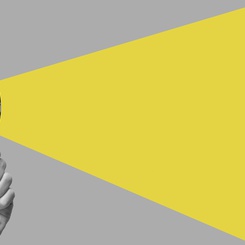With ESSEC Knowledge Editor-in-chief
What makes someone less likely to engage in corrupt behavior? While some individuals quickly adopt corrupt practices when being in a corrupt environment, Stefan Linder (ESSEC Business School), Matthias Sohn (European University Viadrina) and Carmen Tanner (University of Zurich, Zeppelin University Friedrichshafen) looked at who has the strength and willingness to resist corruption - that is: to refrain offering a bribe or accepting one?
You don’t have to look very far to see examples of corruption: it’s a pervasive problem that has a negative impact on society. Who is perpetuating this corruption? Since corrupt behavior isn’t a very socially acceptable behavior, people may not always be forthcoming when asked about their own behaviors. To work around this issue the research team used an experimental game, examining the link between bribery behavior in the game and participants’ moral commitment.
Why moral commitment? Dr. Linder says, “We theorized that people would be less likely to act in a corrupt way if they were more committed to their moral values”, meaning they would act in a way that aligns with their moral standards, equipping them with the strength to resist corruption. This was composed of two elements: protected values and a personality trait called Honesty-Humility.
Protected values are those within a person’s value set that they feel deeply committed to. As Dr. Tanner puts it, these values “are ‘not-for-sale’: they’re strongly linked to a person’s ethics and moral identity”. Protected values have even been found to resist situational factors like financial benefits. The particular moral value at risk here is one’s integrity, or in other words: someone’s self-image of being incorruptible. The more somebody thinks that his or her integrity is non-negotiable, the less likely is this individual to engage in bribery.
The second component of moral commitment is Honesty-Humility. This is one of the six components of the HEXACO personality model, with the others being emotionality, extraversion, agreeableness, conscientiousness, and openness to experience. All of these dimensions exist on a spectrum, with high levels of Honesty-Humility meaning that someone tends to be more sincere, fair, modest, and tends to avoid greediness and exploiting others. Following the logic for protected values, people with high levels of Honesty-Humility should also be less likely to offer or accept bribes.
Examining bribery
The researchers used a two-part experiment to study corrupt behavior. First, they gathered information on participants’ personal values and personality traits, with the 225 participants coming from a major French business school and representing a variety of cultural backgrounds. Then, they took part in a bribery game where they were randomly assigned the role of briber, bribee (a public official) or a member of society impacted by corruption. The briber “could decide whether to offer the public official a bribe, and the public official could accept or reject it as they pleased”. The “member of society” players could only observe, showing that the others were affecting real people by their behavior.
An accepted bribe was financially beneficial to the parties involved, and detrimental to the “other member of society'' participant - even outside the game, as it impacted the remuneration they received. As Dr. Sohn explains, this allowed the team of researchers “to examine both who offered and who accepted bribes, which adds a new angle to the existing research”.
As predicted, personality did play a part: those with greater moral commitment were less likely to either offer a bribe. They broke protected values down into two components: reactions to compromised protected values - how people felt when violating their ethical principles - and trade-offs with protected values, the extent to which people consider integrity as something they won’t sacrifice. When people had stronger reactions to compromised protected values, they were less likely to engage in bribery, whereas the trade-off component didn’t have a strong relationship with bribery. Both of these were strongly related to Honesty-Humility, which itself was linked to lower levels of corrupt behavior. High levels of protected values and Honesty-Humility were also linked to lower levels of competitiveness and greed, which makes sense given those people are less susceptible to the financial incentives of bribery.
When it came to accepting a bribe, the results were a bit more complex. The dimensions of protected values showed a similar relationship to accepting a bribe, but Honesty-Humility didn’t play a strong role in declining bribes.
This tells us that Honesty-Humility plays a role mostly in influencing one’s tendency to offer a bribe, whereas reactions to compromised integrity plays a stronger role in deciding whether or not to accept a bribe. Dr. Tanner suspects that this might be because “accepting a bribe may have a stronger negative impact on one’s identity: by accepting the bribe, you violate your self-image of integrity and incorruptibility”. When it comes to Honesty-Humility, this also tracks with past research showing that those with high levels of it are less likely to cheat and initiate unethical behavior for their own benefit.
What can we do with this information?
-
It can be a long slog to change organizational cultures, so dealing with people’s individual differences might be a more effective strategy.
-
For instance, initiatives to strengthen moral values or recruiting and promoting employees based on their moral qualities.
-
Companies could put more emphasis on moral values from the start of their recruitment process, and could also implement behavioral “nudges” to get people to act in a more ethical way.
With corruption being such a widespread, destructive problem, it’s key to tackle it from all fronts. These results highlight the value of studying personal factors in predicting corrupt behavior, and pinpoints moral commitment as a particularly pertinent one.
Reference
Tanner, C., Linder, S., & Sohn, M. (2022). Does moral commitment predict resistance to corruption? Experimental evidence from a bribery game. PloS one, 17(1), e0262201.








